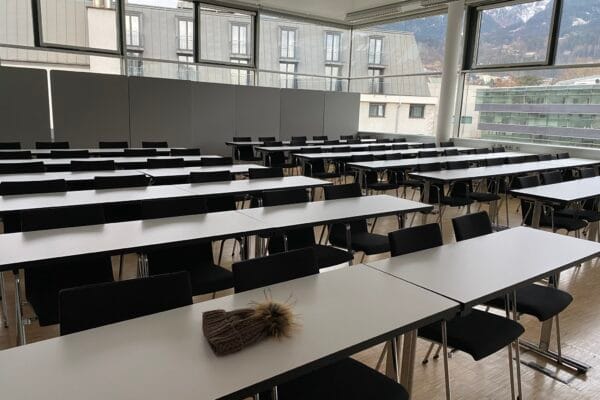
NAME:
MCI - Aula 301
BUILDING:
Management Center Innsbruck
FLOOR:
3
TYPE:
Lecture Room
CAPACITY:
66
ACCESS:
Only Participants
EQUIPMENT:
Blackboard, Beamer, Flipchart, PC, Sound System, WLAN (Eduroam), Handicapped Accessible
Protected areas are essential providers of ecosystem services for human well-being. However, the transfer of these services across the landscape remains underexplored, particularly in mountainous and diverse regions. The Reconnect project adopts a social-ecological perspective to examine how ecosystem service bundles change within and beyond protected areas. Using fine-scale models such as InVEST, connectivity algorithms, and literature-based approaches, we assessed service bundles linked to social values in the Grenoble region, a complex mountain landscape. We evaluated connectivity changes through functional buffers based on anthropogenic pressures and landscape constraints. Our findings indicate that Grenoble’s landscape is generally well-connected, but connectivity varies across protected areas and their borders, where it often declines. This framework supports biodiversity strategies and assesses policy impacts like the Nature Restoration Law on landscape connectivity and human well-being.

We and use cookies and other tracking technologies to improve your experience on our website. We may store and/or access information on a device and process personal data, such as your IP address and browsing data, for personalised advertising and content, advertising and content measurement, audience research and services development. Additionally, we may utilize precise geolocation data and identification through device scanning.
Please note that your consent will be valid across all our subdomains. You can change or withdraw your consent at any time by clicking the “Consent Preferences” button at the bottom of your screen. We respect your choices and are committed to providing you with a transparent and secure browsing experience.